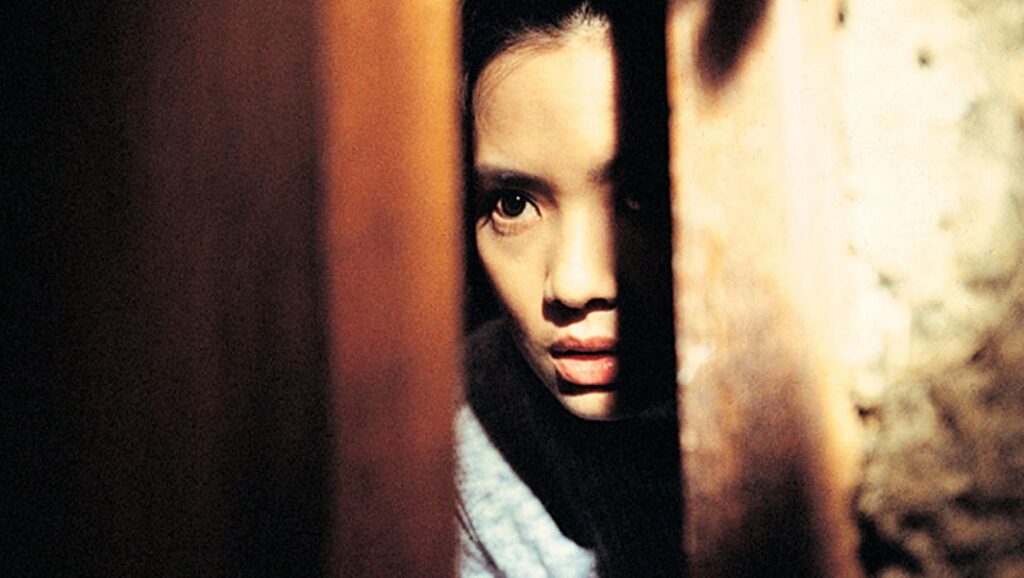In 2003’s Goodbye, Dragon Inn, Tsai Ming-liang’s gentle ode to cinema, the Taiwanese director’s famously steady camera trains on a handful of moviegoers catching a late-night screening of wuxia classic Dragon Inn. Tsai’s funhouse mirror is subtle and suspenseful, and he carves out a meandering plot from a handful of minor, inexplicable dramas. During the Fu-Ho Grand Theater’s last night, its manager, a woman who walks with an iron leg brace (Chen Shiang-chyi), hauls herself down staircases and hallways with a bright pink steamed bun in hand. Her arduous, clanging efforts are captured without comment and her intentions are frustratingly unclear until the film’s final moments. Meanwhile, a younger man (the delightfully bewildered Mitamura Kiyonobu) finds that he’s a magnet for unwanted intimacy, and his time in the theater is filled with instances of human connection at its most awkward and embarrassing. In one scene, a woman brazenly eats sunflower seeds nearby, each crack reverberating through the theater like a gunshot. In another, a men’s bathroom becomes the setting for a relentless tide of broken or ignored social cues, culminating in three men standing shoulder-to-shoulder at the urinals. Across its 81-minute run time, these scenes coalesce into a distinctive Tsai comedy.
By watching these precisely calibrated movements and motions, we begin to subtly embody the characters — even though, in classic Tsai fashion, their desires, hopes, and frustrations are conveyed in silence.
At the same time, an array of wide, desolate shots show the vastness of the empty theater. The overpowering physical spectacle of the cinema, with its vast amphitheater of red velvet seats and serpentine hallways, has rarely been made to feel so poignant. Each shot is not only meticulously composed but imbued with absolute intensity. For the woman in the iron brace, every excruciating step down a staircase thrums with nervous anticipation. In one scene, she enters the theater and stays for a snippet of the film. Her face is illuminated by the light of the screen as she watches a young woman wield a sword with preternatural grace, the actor’s body flowing in a way that hers never will. As the movie winds down, a man in the audience watches with tears in his eyes. Then, abruptly, the house lights are switched on, and in the hallway he meets an older man and his grandson. In a rare snatch of dialogue, the men are revealed to be the stars of the eponymous film, each drawn to the theater by nostalgia, mourning, a desire to be entertained, or an enduring love of cinema. By watching these precisely calibrated movements and motions, we begin to subtly embody the characters — even though, in classic Tsai fashion, their desires, hopes, and frustrations are conveyed in silence. The film’s closing shot, of the theater manager walking home in the pouring rain, heartbreakingly encapsulates the film’s empathetic eye. Despite Tsai’s litany of heartbreaks and indignities, he conveys the simple truth that sharing space and time with others is as nourishing and nurturing as any form of art. With Goodbye, Dragon Inn, viewers mourn not only the loss of a historic cinema, but the demise of a semi-sacred form of communal connection.


Comments are closed.